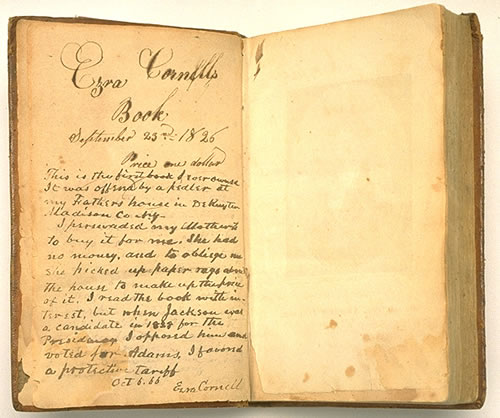Zeitgeist: On Ditching the Monograph and Digital Print Culture
On October 14, Jennifer Howard wrote a post for the Chronicle of Higher Education‘s College, Reinvented blog briefly outlining how short-form ebooks might change the face of serious scholarship. “Ditch the Monograph” considered how the short form might free up scholars to use forms better suited to the needs of their projects—evincing the monograph as the go-to vessel for knowledge production, tenure, and cultural dissemination. Howard mentioned the rise of the digital short—embraced by Princeton UP, among others, as a means of parceling backlist content into digestible highlights and by Stanford UP as a series of original e-books—as a possible inroads to demonstrate that short-form scholarship might be taken more seriously by the academy, ultimately arguing that though “disciplinary gatekeepers” might hold the key, it’s publishers and authors who should be leading the charge to the door.
Howard’s piece whipped through the publishing zeitgeist the same week that saw her Chronicle Hot Type article on digital art publishing, focused on Yale UP’s recent efforts with e-monographs. While the current struggle seems to center on finding viable electronic models that can negotiate highly illustrated topics—with red flags thrown up around issues of image rights clearance, digital technology, and the cost of image reproduction—the article’s stance, like Howard’s blog, was optimistic in tone. Chicago’s executive editor for the art, architecture, and ancient studies, Susan Bielstein, chimed in:
Three years go, she said, the Chicago press estimated it would sell 35 to 50 copies of an electronic [art] book. “Now we’re looking at closer to 110,” she said. “Even though the specific numbers are modest, the rates of change are explosive.”
This kind of prognosticating about publishing at a moment of technological change, though certainly nothing new, also generates its fair share of polemics. In the air last week? Colin Robinson’s (publisher of New York-indie OR Books) reformative romp in the Guardian, “10 ways to save the publishing industry,” which offered a reader friendly treatise focused on globally enabled, locally engaged, realtime publishing that acknowledged the complexity of publishing choices, while pursuing the benefits of a slow publishing model in digitally saturated times: hand-selling, good design, and curated content.
Scholar Andrew Piper (his own most recent monograph Book Was There: Reading in Electronic Times, just out this month, addresses many of the themes surrounding the resiliency of the printed book) wrote a post on his Book Was There blog in response to Howard, arguing why the aim of going “short and electronic” is not the answer. Piper deconstructs the short v. long binary, addressing the arbitrariness of contesting one form above another in a pluralistic publishing culture. He hones in the problem facing the short itself—at 35,000 words, it’s really a medium-length form of scholarship, the sort of thing that bodes well for article-entrenched scientific culture, but something that might not float in the humanities or social sciences, where complex reiterations of histories, argumentative lineages, and and exploratory details require time and space to literally lay down the grounds for academic claims. Piper doesn’t see the short-form ebook as a solution to print’s lethargy, but perhaps his most salient point has to do with an idea borrowed from one of those page-laden monographs: publishing’s imperative reliance on transforming human into social capital. Peer-review and production take time, sure, as Piper points out, and “there’s a window that can’t be surpassed.”
I’ve read and digested all of these pieces. My views in no way account for the views of the University of Chicago Press, but in order to save myself from live-blogging Linda Ronstadt’s shifting fashion preferences in the YouTube archive, I’ll append them here. Surveying all of this, I go back to Colin Robinson’s point about the reader—which Piper takes up in acknowledging the many, not “sole,” forms of scholarship. Walter Benjamin ghosts all of this, and so too do those publishers who could acknowledge that the present is historically situated and that it already foreshadows a future (technological, mechanical) not-quite-here that might be addressed, forestalled, or advanced by timely intervention. Why are we still chasing the aura? How can we not still chase the aura? Why is the aura a sad opera sold-out in digital real-time?
I think about Virginia Woolf hand-setting the type for The Waste Land in 1923, in Hogarth’s edition of 450 that responded to the speedier demands of dissemination at the heels of magazine publishing, acknowledging and resisting the power of commercial printing and its technologies. I think about the chapbooks of Lower Eastside poetry put out by presses like “C” and Angel Hair in the late 1960s, in response to what they advocated as the importance of communities, audience, and work produced at the margins of the mainstream, despite the saturation of new forms of media. I collect Melville House’s Art of the Novella and New Directions’ Pearls series, but I just as avidly read digital-only forums like Rhizome, dis, and Triple Canopy as loci for my generation’s serious media scholarship.
Was there ever a moment when publishing wasn’t always already (yep, that monograph) plural? And, necessarily so, the span, limitations, and horizons of its readers’ attention and interests? Despairing of the printed book, despairing of ebook, despairing of the short, despairing of late capitalism, technology, the Internet, the coming or not-coming shift in how we tenure our scholars and educators isn’t a medium itself. If Marshall McLuhan could dictate the electric light as a kind of pure information, then all of this is a kind of cultural filtration made possible the book. The book already contains the e-book; the e-book already contains the short; the short already contains the demand for new forms that respond to a seismic shift in our sensibilities. We’re holding up mirrors and trying to see ourselves tidily fit, fully subsumed producers and consumers, enraptured and embedded in our forms of scholarship.
The problem? We contain multitudes, yo.

